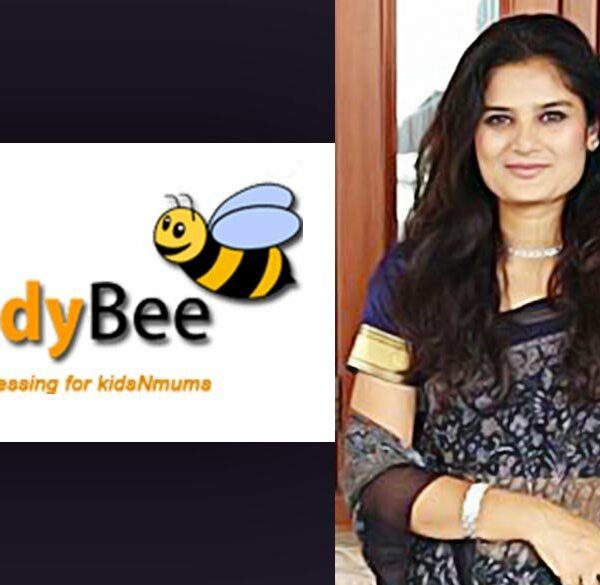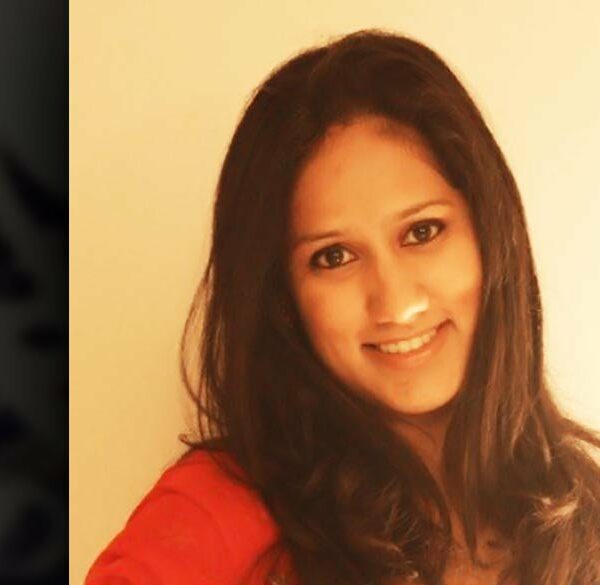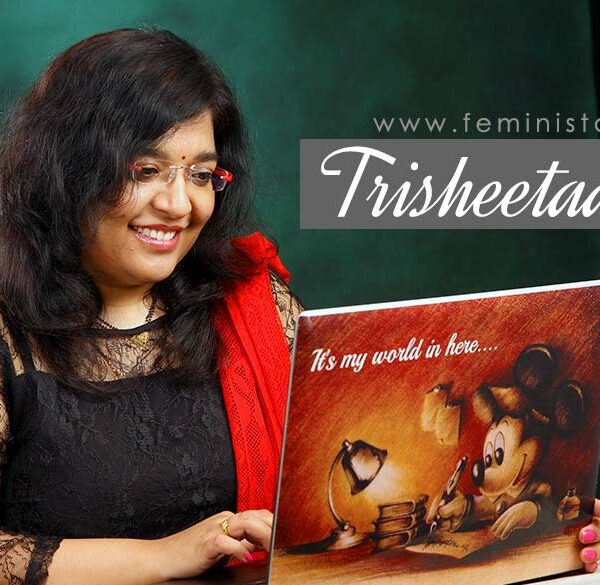When a girl gradually transforms into a woman, she undergoes numerous changes. Started by Sinu Joseph, “Mythri Speaks”, is a registered trust which conducts awareness initiatives. Sinu works intensively in the social space to raise awareness to adolescent girls on menstrual hygiene. Sinu & Vyjayanthi have by far interacted with more than 10,000 adolescent girls through their interactive and informative sessions focussed on imparting education on Menstruation.
Do you give lectures on motherhood as well? How is the reaction of the young rural India, when they hear about motherhood? Normally, girls in cities are nervous, scared or say ‘abhi toh time hai, career banana hai’… is it the same in rural cities as well? Please give your insights.
The essence of these sessions we do is to convey the relationship between menstruation and child birth, so that girls understand the purpose of menstruating in a positive light. So, yes, we do talk about motherhood, but the extent of it is based on the age group of the audience. For instance, for school going girls, we touch upon pregnancy and biological aspects of menstruation. With college going girls, we talk about safe sex, contraceptives, sexuality and the process of child birth. But, regardless of the age group, we welcome questions from girls about anything and everything under the sun, and answer them accordingly.
In general, girls in rural India are positive but shy when we talk about motherhood. A number of them marry in their early twenties and there are cases where married girls from age 15 attended my session. For them, marriage is mostly what parents decide and they don’t seem to mind it. For most of them, marriage seems like a natural next step after basic education.
It is really their choice and we need not intervene unless they are getting married before the age of 18 or if they want to do something else in life and parents aren’t allowing it.
‘ Ladki hai toh zyaada kaam karke kya karna hai? ‘ Sadly, this is the mentality amongst numerous educated families. You have been an engineer, a wife and then a social worker. Throw some light on the journey, and the way your husband & family has supported you throughout this time, and how it has helped you grow. (This is for all the hubbies who discourage their wives to grow big, or travel after marriage)
I never intended to be married. For me, work was and still remains the primary focus of my life. I feel responsible for things around me and the urge to work in the social space is too compelling. So, I thought that it would be natural for me to be single so that I can focus my entire attention on work.
However, it so happened, that I started working with an 83 year old gentleman, Late. Mr. Kalawar, whose grandson was my colleague. It was with Mr. Kalawar that I first travelled to rural schools and it was he who encouraged me to start talking to girls about menstruation. I owe a lot to him for all his support in my work on menstruation. There would be days when he would call me home and line up a series of Sanitary Napkins and ask me to help him figure out which one is of better quality and why! So, when he asked me one day to marry his grandson, I couldn’t refuse. But, it wasn’t just that. My husband, Vikshut, is a wonderful person and someone who also works in the social space, and therefore has a similar mindset. He has supported and encouraged me to do whatever it is that I have in mind and has never asked me to change or be a certain way. I couldn’t have even imagined that there could be so much understanding in a marriage. I am also very fortunate to have fantastic in-laws who totally support my work and are proud of what I do.
So, although I hadn’t planned marriage, it did happen, and it gave me a lot of stability which in turn helped me do better at work actually.
You travel to the remotest of the places. How is it difficult for a girl? Using/locating washrooms, managing during periods in humid and hot places. Describe your journey in a way that will encourage other women, who probably wish to do the same, but don’t because of preconceived notions. You could quote instances where you strongly feel that the government needs to take steps to improve hygiene and sanitary conditions.
We often forget that even in the remotest of places, women live. So, it is just a matter of adapting to the way other women live in the places where you travel, and not being too rigid about your way of life.On long journeys, especially in cars or buses, you have no choice but to relieve yourself behind some bush! If we can learn to loosen up a bit, we will learn to enjoy the breeze and go with the flow 😉
Actually, in most rural places, the open spaces are better than the toilets! With all the focus on building toilets, we often forget to pay attention to why people need to use toilets and why it needs to be kept clean. In so many villages, where I’ve travelled, the toilet would be a storeroom or some dilapidated room which no one wants to use.
The government and NGOS working on Sanitation need to focus on getting people to keep their toilets clean, and not just limit it to building toilets.
I try and plan my travel on days when I do not have my period. With some planning, you can work around the dates. And if not, just be calm and ask for toilets to change and clean when needed. The biggest problem is not that we get our period while travelling, but that we feel embarrassed to ask for a toilet or changing area. If women can get over that embarrassment, a period does not have to be a pain.
And remember, women in rural areas also menstruate. It won’t kill you to get your period while you are in a rural or remote village. 🙂












